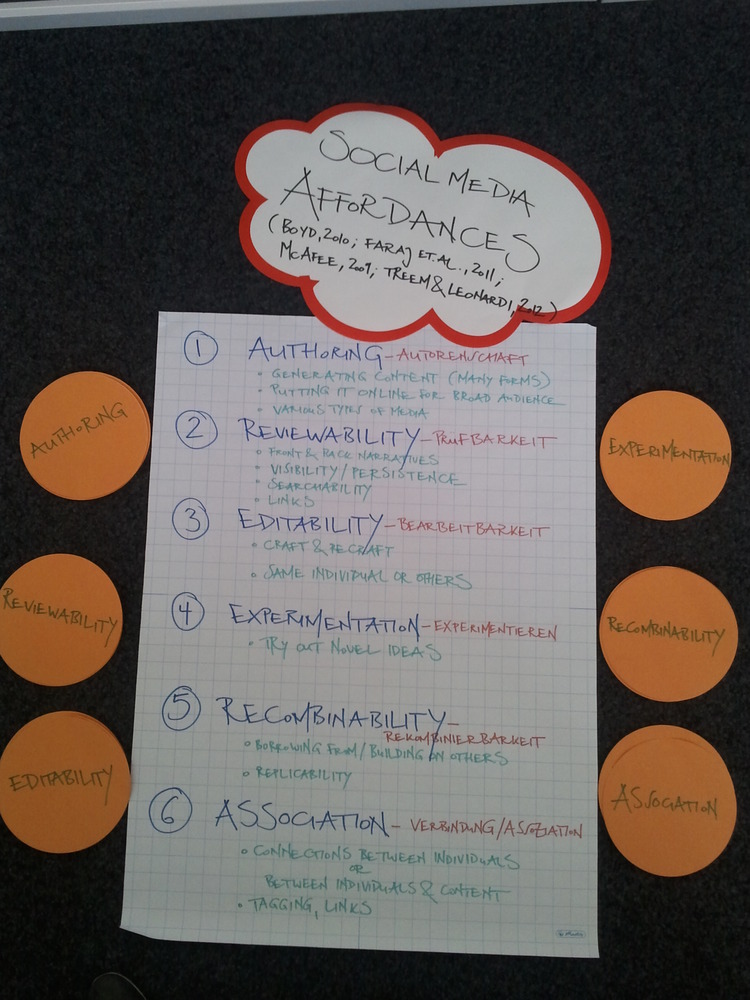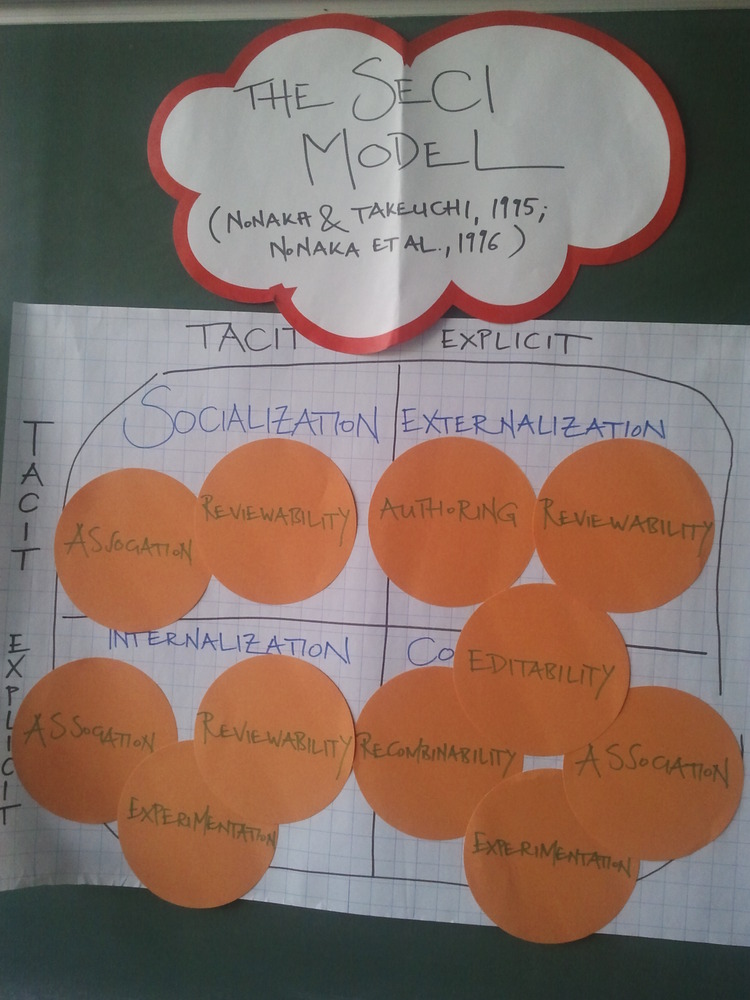On October 12 and 13, 2012, the KnowledgeCamp took place in Karlsruhe, Germany. It was the first barcamp, or unconference, I attended. For those of you who are not familiar with this type of event, here is the the corresponding Wikipedia article. On one hand, I went because I was curious to see how such a barcamp works. On the other, I wanted to offer a session in order to present and discuss a paper a colleague and myself have been working on recently.
My general impression of the barcamp was very positive. One of the greatest features is the selection of the sessions by the participants themselves. This procedure guarantees that the content offerered is relevant to the people attending the barcamp. While I was worried that my own session may not be suitable for the crowd present, I was pleased to see a number of hands go up once I introduced the topic. Hosts are further free to choose how they conduct their sessions. I have seen a number of different formats, ranging from informal group discussions to semi-structured workshops. Each of them have their pros and cons, depending on the goals of the host. Some hosts, for example, presented a problem their organization is facing presently and were seeking feeddback and suggestions on the issue. Others were more concerned about general trends and the future of the knowledge management discipline.
As for my own session, I presented some content for roughly 15 minutes and then got the audience to discuss and work with me for another 30 minutes. The goal of the session was to discuss how social media affordances (boyd, 2010; Faraj et al., 2011; Treem and Leonardi, 2012) may impact on the knowledge creation process described by Nonaka and Takeuchi (1995). Below you can find some pictures of the material we used and the outcome of our discussion.


Another highlight was the panel discussion on Enterprise 2.0 and knowledge management with Dr. Alexander Richter, Dr. Peter Schütt, and Prof. Stefan Smolnik, among others. All in all, the KnowledgCamp was certainly a nice introduction into the world of barcamps. Thanks to the sponsors and organizers for their efforts! I am now very much looking forward to attending the CommunityCamp in Berlin later this month. In case you became interested as well, here is a list of barcamps taking place in Germany, Austria, and Switzerland.
Boyd, d. (2010). Social network sites as networked publics: Affordances, dynamics, and implications. In Z. Papacharissi (Ed.), Networked self: Identity, community, and culture on social network sites (pp. 39–58). The MIT Press.
Faraj, S., Jarvenpaa, S. L., & Majchrzak, A. (2011). Knowledge Collaboration in Online Communities. Organization Science, 22(5), 1224–1239.
McAfee, A. (2009). Enterprise 2.0: New Collaborative Tools for Your Organization’s Toughest Challenges. Harvard Business School Press.
Nonaka, I., & Takeuchi, H. (1995). The Knowledge-Creating Company: How Japanese Companies Create the Dynamics of Innovation. New York: Oxford University Press.
Nonaka, I., Umemoto, K., & Senoo, D. (1996). From information processing to knowledge creation: A Paradigm shift in business management. Technology in Society, 18(2), 203–218.
Treem, J. W., & Leonardi, P. M. (2012). Social Media Use in Organizations: Exploring the Affordances of Visibility, Editability, Persistence, and Association. Communication Yearbook (Vol. 36, pp. 143–189).


One thought on “A Barcamp Experience: The KnowledgeCamp in Karlsruhe”